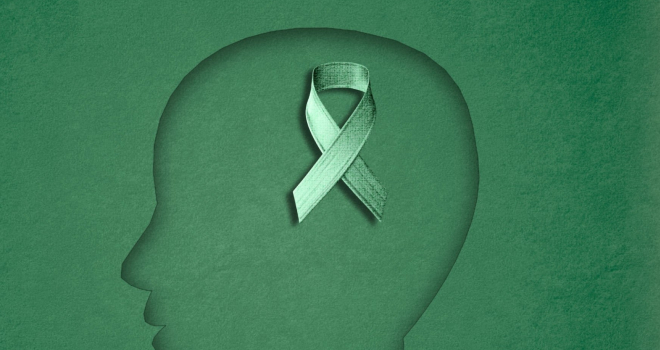


Over the last few years, mental health has gained the central stage in almost every country in the world. Despite the growing discussions surrounding mental well-being, the importance of men’s mental health often remains overlooked.
However, according to WHO, the rate of suicide is twice among males than in females. High-income countries have the highest male suicide rate. The situation is not different in Malaysia. A study of men’s health in Malaysia revealed that men are two or three times more likely to die by suicide than women.
The nature of mental health issues faced by men and women can be quite different. In this article, we aim to shed light on the specific challenges that men encounter in the modern era and provide effective strategies to not only help them survive but also thrive amidst constant change.
In the ongoing dialogue about mental health, the spotlight has often centred on general well-being without delving into the unique challenges faced by different demographic groups. One such group that warrants focused attention is men, who grapple with distinct mental health challenges shaped by societal expectations, cultural norms, and personal experiences such as:
Societal expectations often cast men in the role of stoic providers who shoulder burdens in silence. The pressure to conform to traditional masculine ideals can lead to the suppression of vulnerability and emotions. Understanding the conflict between the mask of masculinity and the need for emotional expression is important for unravelling the mental health challenges faced by men.
Men frequently encounter unique challenges in the professional realm, including the expectation to be ambitious, successful, and unyielding in their pursuits. The intersection of career pressures and personal identity can contribute to stress, anxiety, and a sense of inadequacy – all of which can pose significant mental health challenges.
Navigating relationships and social dynamics can be different for men and women. Expectations to be assertive, emotionally resilient, and in control can strain the interpersonal connections of men. Societal expectations of relationships and their link to self-worth can be a point of stress for men.
Despite the growing awareness, the stigma surrounding mental health remains pervasive, and men often internalise this stigma more deeply. Reluctance to seek help due to fear of judgement or perceptions of weakness can exacerbate mental health challenges. Recognising and dismantling these stigmas is crucial for fostering an environment where men feel empowered to prioritise their mental well-being.
Men, like anyone else, employ coping mechanisms to navigate life’s challenges. While some turn to healthy outlets such as exercise, hobbies, or social connections, others may resort to less constructive methods such as substance abuse or avoidance. Understanding the spectrum of coping mechanisms and promoting healthier alternatives is vital in addressing mental health challenges.
So how can we address these challenges? Understanding the challenges faced by men requires a holistic approach. Here are some methods which can be useful:

To thrive through change, men must feel empowered to share their struggles without the fear of judgement. Encouraging open conversations about mental health normalises the experience, fostering a supportive environment for men to seek help when needed.

Challenging stereotypes associated with masculinity is also important. Men should feel free to embrace a spectrum of emotions without compromising their identity. Shattering these stereotypes creates a healthier understanding of what it means to be a man in the modern world.
Men, like individuals of any gender, grapple with a variety of mental health issues. While the expression of these challenges may differ, it is essential to recognise and understand the common problems experienced by men in the modern world:
Men may exhibit different symptoms of depression compared to women, such as increased irritability, anger, or the masking of emotional pain through risky behaviours. Societal expectations around masculinity can contribute to the underreporting of depressive symptoms.
Anxiety disorders, including generalised anxiety, social anxiety, and panic disorders, affect men as much as women. However, men might be less likely to seek help due to societal pressures to appear strong and self-reliant.
Men are statistically more prone to substance abuse issues, often as a means of coping with stress, anxiety, or other underlying mental health challenges. Substance abuse can exacerbate mental health issues and create a cycle that is challenging to break.
As has been found in various studies, men face a higher risk of contemplating suicide than women, despite women attempting suicide more often. This is often attributed to men choosing more lethal means and societal expectations that discourage men from expressing vulnerability or seeking help.
The pressures associated with career success and financial stability can contribute to significant stress for men. Balancing work demands with personal life and societal expectations of success can lead to burnout and mental health challenges.
Men may struggle with relationship-related stress, including difficulties in communication, intimacy, or navigating changing societal expectations around partnership and family roles.
Men may face challenges in forming and maintaining connections due to societal expectations around independence. This isolation can contribute to feelings of loneliness, which is a risk factor for various mental health issues.
By acknowledging and addressing the unique aspects of men’s mental health, we contribute to a more inclusive and supportive environment for all individuals. Here are a few coping strategies that have proven beneficial specifically for men:
Practising mindfulness and meditation can be transformative for men facing the whirlwind of change. These techniques promote self-awareness, reduce stress, and enhance emotional resilience.
Maintaining strong social connections is a cornerstone of mental health. Men benefit greatly from forming deep, meaningful relationships that provide emotional support and understanding.
Breaking the stigma around seeking professional help is imperative. Therapy and counselling offer a safe space for men to explore their emotions, gain valuable insights, and develop coping mechanisms.
Engaging in hobbies and passion pursuits not only provides an outlet for stress but also fosters a sense of purpose and accomplishment outside of traditional roles.
Physical and mental health are interconnected. Regular exercise, a balanced diet, and sufficient sleep contribute significantly to a man’s overall well-being, helping him navigate challenges with resilience.
The notion that vulnerability is a sign of weakness needs to be challenged. Normalising a spectrum of emotions, including sadness, fear, and uncertainty, helps men feel more comfortable expressing their feelings without the fear of judgement.
It is essential to redefine societal expectations of masculinity so that traits such as empathy, compassion, and emotional intelligence can be emphasised as strengths rather than weaknesses. This shift in perspective allows men to embrace a more holistic sense of self.
Personal narratives have the power to humanise mental health struggles. Men who have faced and overcome challenges should be encouraged to share their stories. This not only reduces feelings of isolation for the person suffering but also inspires others to seek help.
Another important aspect is to increase awareness and understanding of mental health issues among men and the broader community. Education diminishes misconceptions and empowers individuals to recognise when they or someone they know might be facing mental health challenges.
There is a need to establish environments where men feel safe discussing their mental health. This could be in workplaces, community centres, or online forums. These spaces should be judgement-free zones, fostering trust and openness.
Engaging men in the planning and execution of mental health initiatives can ensure men don’t feel left out from such initiatives. Involving them in conversations about their well-being helps tailor support systems to address their specific needs and concerns.
Fostering a culture of support among peers is essential. Friends, family, and colleagues can play a pivotal role in recognising signs of mental health struggles and encouraging men to seek help. Peer support diminishes the stigma associated with reaching out for assistance.
Let us now take a look at how to foster these transformative practices among men:

Challenge the traditional notion of strength by emphasising that taking care of one’s mental and emotional well-being is a powerful and courageous act. Real strength lies in acknowledging vulnerability and seeking support.

Physical well-being is intricately connected to mental health. Hence regular exercise, a balanced diet, and sufficient sleep enhance resilience and coping mechanisms.

Normalise the concept of mental health days. Acknowledge that everyone, regardless of gender, occasionally needs a break to recharge and focus on their mental well-being.

Encourage the pursuit of hobbies and passions. Engaging in activities that bring joy and fulfilment is a powerful form of self-care, providing a necessary escape from the pressures of daily life.

Help men establish achievable goals. Unrealistic expectations can lead to stress and disappointment. Breaking down large tasks into smaller, manageable steps promotes a sense of accomplishment and self-efficacy.

Encourage men to surround themselves with supportive friends and family, fostering an environment where they feel comfortable expressing themselves and seeking advice when needed.
Here’s a guide to therapy options tailored to address men’s unique needs:
Traditional one-on-one counselling provides a confidential space for men to explore their thoughts, emotions, and challenges. It offers a personalised approach to addressing specific mental health concerns and building coping strategies.
CBT is a structured, goal-oriented therapeutic approach that helps individuals identify and change negative thought patterns and behaviours. It is particularly effective for managing stress, anxiety, and depressive symptoms.
This long-term therapeutic approach delves into unconscious thoughts and patterns of behaviour. Psychoanalytic therapy encourages self-reflection and can be beneficial for individuals seeking a deeper understanding of their emotions and experiences.
Group therapy brings together individuals facing similar challenges. For men, participating in a group setting can provide a sense of camaraderie, fostering connections and understanding through shared experiences.
For men navigating relationship challenges, couples or family therapy provides a safe space to address communication issues, enhance relationship dynamics, and work towards collective well-being.
Dialectical Behaviour Therapy is effective for managing intense emotions, particularly relevant for men dealing with anger or impulsivity. It combines cognitive-behavioural techniques with acceptance strategies to promote emotional regulation.
Mindfulness-based therapies, such as Mindfulness-Based Stress Reduction (MBSR), focus on cultivating present-moment awareness. These approaches can be beneficial for men seeking stress reduction and increased emotional resilience.

Thriving through change is not an individual endeavour but a collective effort. By dismantling stereotypes, encouraging open dialogue, and fostering environments that prioritise mental health, we pave the way for men to not only survive but flourish in the ever-changing modern world.
In conclusion, acknowledging and addressing men’s mental health challenges is a crucial step toward building a society where everyone can thrive. By embracing change, breaking down stigmas, and promoting holistic well-being, we can create a world in which the modern man is not just a survivor but a thriver.
Common mental health issues in men include depression, anxiety, and a reluctance to seek help due to societal expectations around masculinity.
Toxic masculinity in men’s mental health refers to societal pressures promoting rigid, harmful stereotypes that discourage emotional expression and vulnerability, hindering mental well-being.
Toxic masculinity harms men by fostering emotional suppression, discouraging help-seeking behaviours, and perpetuating harmful stereotypes, all of which contribute to mental health challenges and hinder overall well-being.
Sources:
Spread the love, follow us on our social media channels